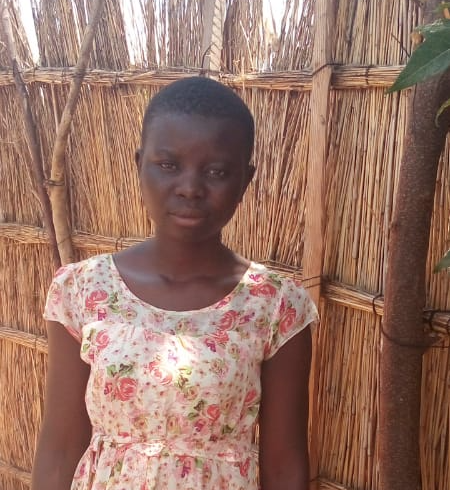Jessy Nkhoma: Steve Sinnott Foundation Young Ambassador in Malawi

In 2019, I had the opportunity of being a Steve Sinnott Foundation (SSF) Young Ambassador and working with Send My Fried to School in the U.K.
Being an SSF ambassador and working with Send My Friend to School has been a great opportunity for me. I learnt a lot of things:
a) How to raise our voice as young people in the world.
b) Awareness and understanding of my own community and our culture and how that sits with other cultures of the world.
c) The pleasure of interacting with different people in the U.K.
I very much enjoyed meeting different people from different cultures, when I visited the schools, mainly in London but in other parts of the UK as well. It was very hard for me as it was the first time leaving my country.
I really enjoyed campaigning for Education For All with the other send My Friend to School ambassadors and they helped me to learn more about Sustainable Development Goal 4 -SDG4, which is about ensuring that all children have access to inclusive, equitable and quality education. Education being the key to success in life. I have realised that it is my responsibility to campaign for better and affordable education worldwide. Both girls and boys must have access to education.
During my trip to the UK I have benefited from meeting different people, how to raise my voice and to be heard by the masses concerning education and climate change. I learnt about the differences and similarities in the UK and Malawi. I have learnt what my fellow peers are doing to combat climate change. I also learnt to keep struggling when dealing with difficult situations. It is my choice to measure the impact I am personally having on climate change and those in my community.
My best moment was speaking to the crowd at the Climate Strike outside Parliament. I did enjoy speaking at the party conferences, visiting a museum, many schools and a university and a football stadium but I enjoyed most the feeling of solidarity and the shared passion to make a change through campaigning at the climate strike.
Since returning to Malawi, I have continued to use my voice and talk to people about the devastating effects of climate change. I have spoken with many young people at school and college and in my community.
It is difficult for young people to have their voices heard in Malawi, many young people are uneducated as they cannot afford education. When I talk to young people about climate changes they are often not interested as they don’t understand the basics due to lack of education opportunities.
I have personally spoken with Tailors Boopngue, member of parliament to raise the issue of climate change and lack of education for all. We discussed some ideas on how we can make a real impact on climate change in Malawi.
In the future I am looking forward to continuing the campaign for Education for All as I believe that education will have a real impact on climate change. I am also looking forward to continuing my own education, which has not been easy due to affordability and my family are poor, so it is difficult to pay for school fees and materials. I am studying hard for my exams in June 2022.




